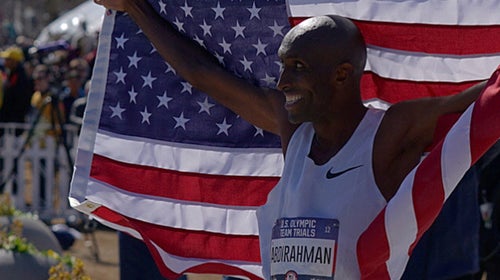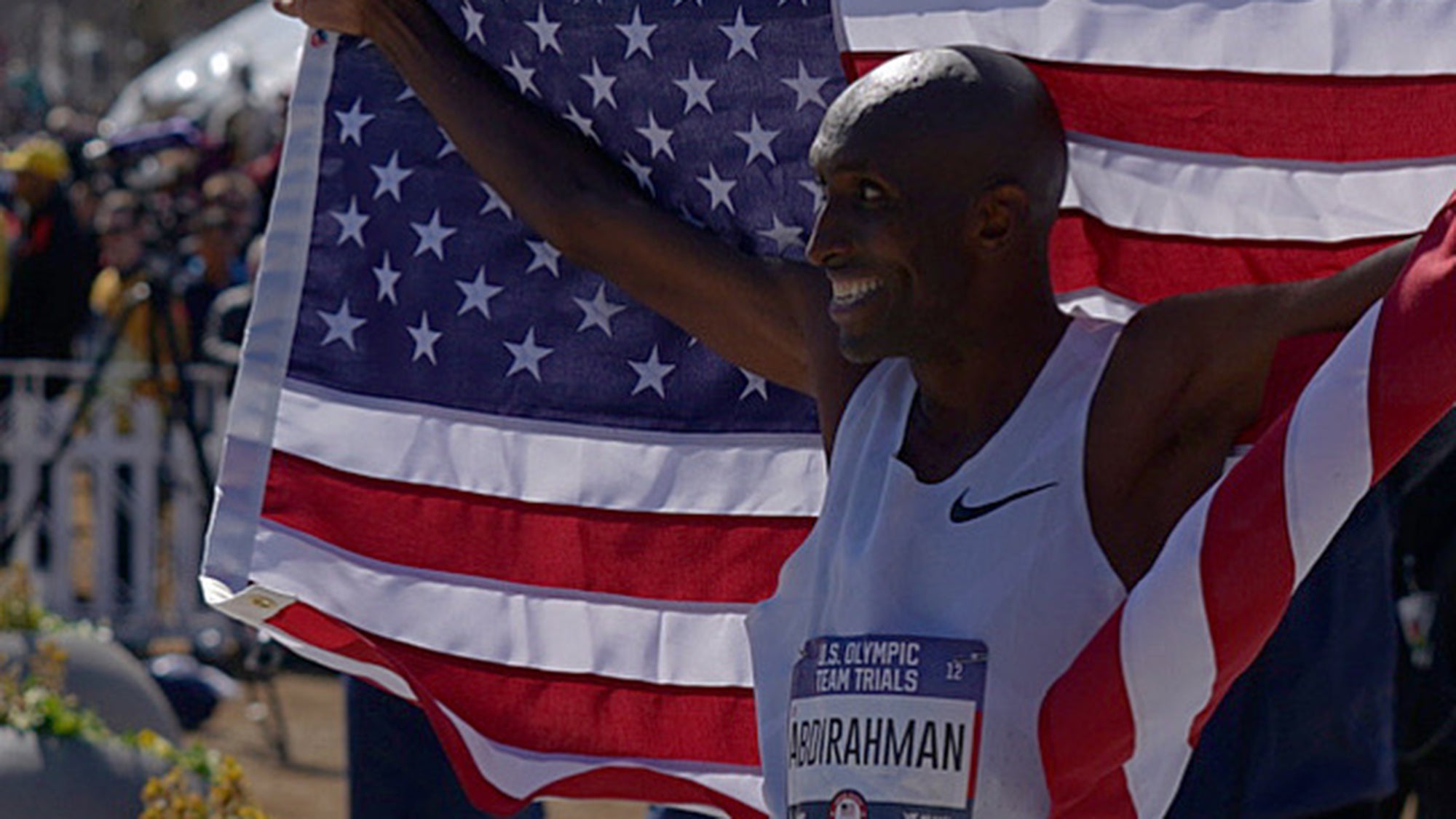Sitting in a guest house in Sululta, Ethiopia, just over three weeks out from the marathon trials, Abdi Abdirahman looks as relaxed as ever. Over the past 20 years, elites have come and gone, but Abdirahman has managed to remain a consistent threat on the U.S. and world stage. On February 29, 43 year-old Abdirahman, known as the “Black Cactus,” aims to make his fifth Olympic Team.
American Abroad
Twenty years ago in Vilamoura, Portugal, Abdirahman was about to toe the line representing the United States at the 2000 World Cross Country Championships. A Qatari friend approached Somali-born Abdirahman, and told the recently naturalized citizen about another Somali athlete running at the competition.
“I got excited and yelled ‘where?!” Abdirahman remembers, “Because at that time I hadn’t seen another Somali in like 12 years. In Arizona there weren’t other Somalis. It was just my family.”
The junior athlete who came to look up to Abdirahman as a role model, training partner, and family member, finished 25th in the junior race. His name was Mo Farah.
Born in 1977 in Somalia, Abdirahman moved to Arizona at age 12, right when the war in Somalia started in 1989. Thus he had few memories of Somalia and few relationships with Somalians prior to starting running in 1994. But success in international athletics and making his first Olympic team in 2000, introduced new transnational relationships, travel experiences, and training techniques, that have proven to stand the test of time.
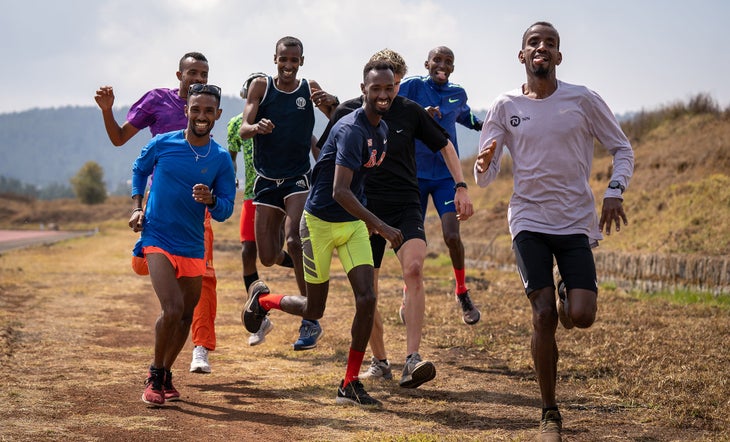
The Old Man
Now, Somali-born friends training in Ethiopia and preparing to make their respective Olympic teams—U.K.’s Mo Farah, Belgium’s Bashir Abdi, Netherlands’ Mohamed Ali, Sweden’s Mustefa Mohamed, and fellow U.S. contender Ahmed Osman—view Abdirahman as a role model, legend, and trailblazer, but they also joke about him being “an old man.” His friends often make fun of his slow gait, “like he’s run so many miles he’s forgotten how to walk.”
Indeed, it’s difficult to fathom how many miles his long, lean, seemingly endless legs rested atop a sofa, have run. But Abdirahman does not think too much about his age; nor does he seem to be too concerned with numerical statistics generally.
“I’m not ashamed to say I’m 43 years old,” he says. “I feel good, I recover well. And it’s all in your mind too. I still believe I can compete at a high level and I get a lot of motivation from myself.”
For someone that has run remarkably fast for so many years (a personal marathon best of 2:08:56 in Chicago in 2006, a third place finish at the New York City Marathon in 2016, and a 2:11:34 American masters record in New York last fall, to name a few accolades) Abdirahman possesses a kind of relaxed composure and slow way of life that exemplifies and literalizes the metaphor of running, business, and life, being “a marathon, not a sprint.”
Lucky that he has not endured too many serious injuries, Abdirahman has changed very little of his training over the years. After four consecutive Olympic Games—2000, 2004, 2008 and 2012—he views athletics as a simple endeavor. “Running is not a complicated sport,” he says. “If you’re tired, you’re tired. You take a rest.”
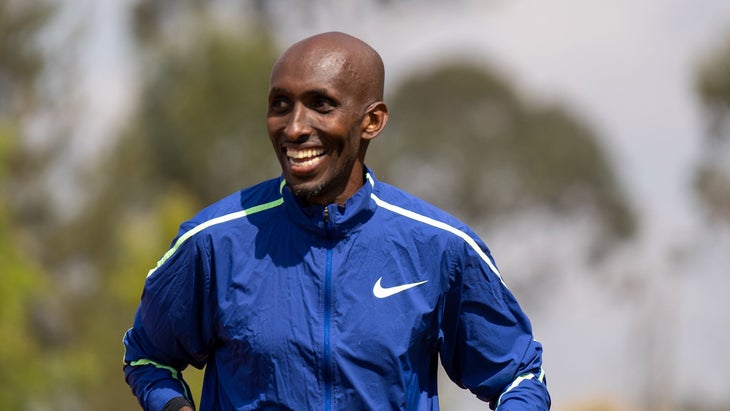
African Training
That said, after 2012, there seems to have been at least one significant change in Abdirahman’s training. Farah, who after many attempts convinced Abdirahman to join him in a training camp in Ethiopia, changed Abdirahman’s annual rhythm. In 2015, he returned to Africa for the first time. “I didn’t really remember anything from living in Africa so it felt like my first time here,” Abdirahman recalls. “I just started thinking ‘Why did I come here? There’s no hot water. The power goes off all the time.’”
While maintaining his role as the comedian in the group, Abdirahman does credit his longevity by putting in consistent group training at high altitude and responding to how his body feels.
Every Sunday he does a long run—anywhere from 30 to 40 kilometers at a hard effort. Tuesday or Wednesday are speed sessions, which vary in terms of interval distances and splits and are usually done on a track. Friday is often a tempo run between 16 and 20 kilometers.
Two or three times per week he does work in the gym, focusing on strengthening his core and hips. And the other days are recovery days, where he runs very much based on how he feels. Running twice per day is standard, but not obligatory. Taking recovery days slow is not imperative, but is also quite normal.
Since his annual trips to Ethiopia have become routine, Abdirahman also travels to Somalia once a year. There, however, he jokes there is still not much of a running culture. “When people see me out training there, they yell ‘What are you running from?’” he says. “But I like running over here with these guys. I like keeping it fun.”
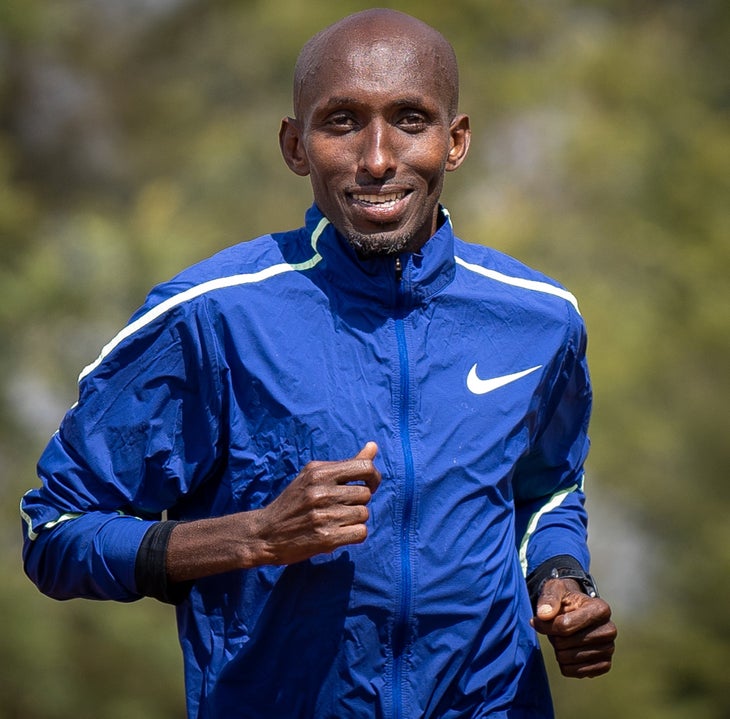
“I love Running. I’m Good At It.”
And perhaps this might be the greatest training secret Abdirahman has to offer—keep it fun. When pressed about his ability to continue competing at such a high level into his 40s, Abdirahman says, “I can’t speak for other athletes, but sometimes people only try to treat running as a business and make as much money as they can as quickly as they can. They say, ‘I’m going to run this many races and get this much prize money, etc.’ But I try to take it slower, one step at a time. I love running. It’s my hobby. I’m good at it. And I get to make money from it, too.”
Despite the fact that Abdirahman and his training partners think he has as good a shot as any to make this year’s Olympic team, he admits this would probably be his last Games. That said, he approaches this race as he would any other. “Of course there’s a bit more at stake,” he says. “But I don’t put any extra pressure on the trials. I just view it as I would any other competition.”
If any extra motivation lingers, it is about his post-race plans. Normally he just takes three weeks to one month off to rest, but this time he has a bigger idea if he makes the team: “I just want to have a big party at my house. I want to have all my friends over. And I want to slaughter a camel.”
